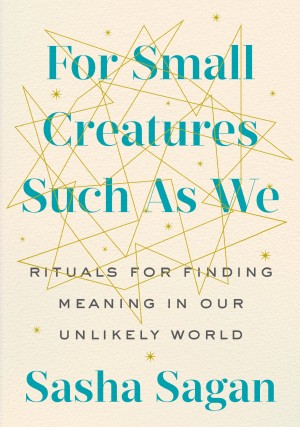January 1, 2013
Everything is going great in Lorna Crawford’s life. She’s married to a fantastic husband, has a posse of girlfriends, recently landed a new job, and best of all, is mom to a two-year-old, with another child on the way. The spiritual practices she has made a centerpiece in her life — mindfulness, meditation, yoga — are becoming second nature. But four months into her pregnancy, Lorna learns there may be something wrong with her unborn baby, a prospect that throws her life and her inner peace into turmoil.
Over the months, as her midwife orders one test after another, Lorna is challenged to maintain her calm and hopeful center. She is helped by numerous spiritual activities, including breathwork, yoga, appreciation exercises, crystal-bowl relaxation, spiritual reading (including from a rabbi), and more. Will all this be enough to help Lorna through the months of not-knowing — and possibly a horrific diagnosis? Foreword Reviews calls Warrior Won “spiritual fiction that is both compelling and fun.”
Discussion Questions
Courtesy of Meryl Davids Landau
- At the start of the novel, Lorna has difficulty maintaining her practices of yoga and meditation the way she did before her child was born. Does her struggle strike you as genuine? Have you had a similar experience of life getting in the way of your daily practice? How did/do you deal with it?
- Lorna loves her boss and her job, and is obviously good at her work, yet her mind occasionally flips to worrying about whether her boss is unhappy with her. Why does she do this? Why do we all do this sometimes? How can we stop our minds from catastrophizing for no reason?
- From the moment Lorna faints, she becomes concerned that something is wrong with Deuxie, even though for many months there is no medically proven problem. Did you feel that Lorna was worrying about nothing at the time, or was she right to trust her instincts? Have you ever sensed a problem before it happened? What do you attribute that to?
- Don is a key source of support for Lorna for much of the novel. How did you feel when Lorna hears the news about Deuxie’s diagnosis and runs out of town without him? Do you like how Don handles her return? What about how he manages his own reactions to their reality?
- Lorna has a group of tight, spiritually aware girlfriends who aim to lift one another up. Do you find yourself drawn to some of the women more than others (and if so, which), or to all for different reasons? In your own life, do you have a friend, or group of friends, who fills this important role?
- Continuing a theme from Downward Dog, Upward Fog, Lorna has a fraught relationship with her less-than-perfect mother. How does Lorna eventually come to terms with her? Do you have a difficult relative you might try to view in a different light?
- What do you think about the Blessingway, and that it pampers and honors the mother rather than the baby? Could you see yourself throwing one for someone in your life?
- Lorna has a mixed view of the conventional medical community. She respects doctors and their proven treatments, but at times denigrates them. How do you feel about her reactions? How do you reconcile any tension you might have between Western and Eastern medicine?
- Lorna (and author Meryl Davids Landau) is an avid reader of spiritual nonfiction books. Have you read many of the books Lorna does? Which are your favorites? Which had you not known of that you’re now inspired to discover?
- Warrior Won includes many spiritual practices that Lorna uses to maintain her center. Which ones included in the book have you personally tried? Are there practices that are new to you that you want to explore? (The practices include “sujaling,” as Lorna terms it, which can be a sitting or walking meditation; hatha yoga; various types of breathwork; appreciating people; consciously intending what you want in the next segment; focusing inside your body; engaging all of your senses; bringing a “smile” to your body; eating mindfully; singing about your worries; rapidly repeating your worries; challenging your worries; attending meditative musical events; and reading spiritual books.)




